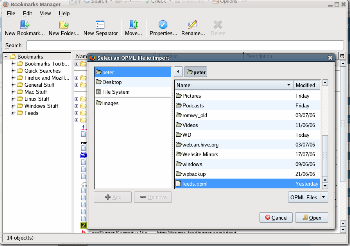Slow, I know I am. But I’ve just run the Ubuntu Dapper Drake Live CD (well, actually the standard CD is the Live CD).
My first impressions are good. It boots pretty quickly for a live distro, and hardware compatibility on this machine was very good. The only thing Ubuntu couldn’t handle properly was my 19″ CRT, but nothing seems to manage that. It ran at 1280×1024@60Hz, which was a good resolution but a very poor refresh rate.
The Gnome desktop was slick and fast considering it was coming off a CD. Not my choice of desktop, but nevertheless, Gnome has come a very long way since I last used it seriously. The Gnome applications feel very slick and Ubuntu’s icon set particularly added to the polished feel.
The applications were up-to-date, the latest Gnome (2.14 if I’m right), Firefox 1.5.0.4 and a host of cool Gnome applications. Hankering to use my favourite KDE apps, however, I wasn’t too impressed with the fact that they run with a blue internal colour scheme, compared to Ubuntu’s standard orangey look. This is due to the lack of something like KDE’s GTK-QT-Engine which translates Gnome/GTK apps to look as if they’re running under KDE. Gnome could probably use this, but the problem isn’t nearly as bad as it could be, because there are more GTK-based apps than there are KDE/QT applications.
Anyway, that’s all for now, but I might well extend my Beginner’s Linux Tutorial series by running a quick tut on how to install Ubuntu off the Desktop (aka Live) CD.

